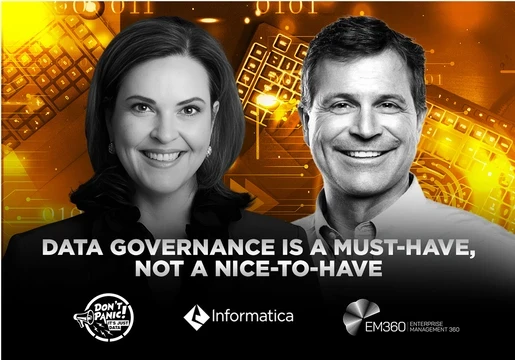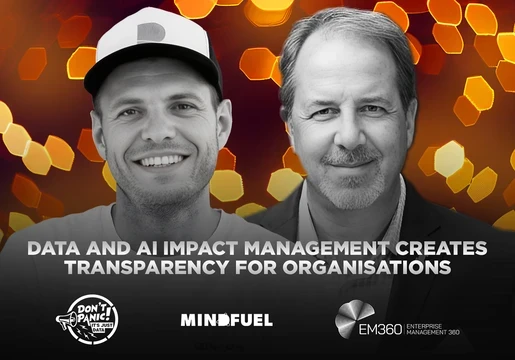A company is trying to predict the interests of consumers like a new smartphone they might be interested in but are not even consciously aware of it yet.
Imagine a technology that can actually peek into your mind to not just grasp your current desires but to actually know your future desires.
An AI agent can now predict such intentions of consumers in real-time. Researchers are calling it the “Intention Economy.”
No, this isn’t science fiction. Academics from the University of Cambridge’s Leverhulme Centre for the Future of Intelligence (LCFI) have now anticipated a future market where AI Agents can predict and influence human intentions, which could be beneficial for businesses.
EM360Tech asked an AI expert, Cory Lopes-Warfield for his thoughts on these AI agents predicting human intentions before even knowing their own desires.
“A shift from the attention economy to the intention economy seems inevitable in the world of predictive analytics, and businesses who cracked the code on it ethically will represent massive opportunity, impact and revenue generation.”
“The real question is how can this not only serve the businesses but also their customers - and truly humanity at large? Obviously, we will need transparency, profit sharing, or some type of reward for the consumers who are being manipulated, analysed, and anticipated,” Warfield added.

What is the Intention Economy?
The “Intention Economy” is an era where digital signals describe one’s intent. AI ethicists call it the dawn of a “lucrative yet troubling new marketplace for digital signals of intent.” This also covers buying movie tickets to voting for candidates.

Warfield, also editor-in-chief at Tech For Good described Intention Economy to EM360Tech.
He says that the Intention Economy is the implementation of technology to affect consumer buying and actions based on predictions, forecasting, and preferences.
“Think of it as the next iteration of monetizing eyeballs and users,” he explained.
“If humanity gets it right, which to me must involve blockchain, respect for privacy, financial upside for all involved and transparency (as well as opt-in), it can be a glorious thing, but if it’s only done to appease and enrich executives and shareholders, and transparency is not maintained, it can be a very destructive development too.”
How Does Intention Economy Help Businesses?
Organisations can potentially capitalise on the desires predicted by the Intention Economy to help other businesses meet consumer interests in real-time.
Companies like OpenAI, Shopify, Nvidia, Meta, and Apple are actively developing technologies that could contribute to the Intention Economy.
Researchers believe that this kind of AI will combine knowledge of individuals’ digital habits “with an uncanny ability to attune to us in ways we find comforting – mimicking personalities and anticipating desired responses – to build levels of trust and understanding that allow for social manipulation on an industrial scale.”
Dr Yaqub Chaudhary, an LCFI visiting scholar says that tremendous resources are being expended to position AI assistants in every area of life. This should raise the question of whose interests and purposes these so-called assistants are designed to serve.
“What people say when conversing, how they say it, and the type of inferences that can be made in real-time as a result, are far more intimate than just records of online interactions,” he added.
“We caution that AI tools are already being developed to elicit, infer, collect, record, understand, forecast, and ultimately manipulate and commodify human plans and purposes.”
The real question businesses need to ask is whether consumers are comfortable with AI agents predicting their choices before they are even aware of them. Is this level of prediction invasive or convenient? While it may help businesses, how does it truly serve the best interests of their target customers?
Researchers say that in an Intention Economy, large language models (LLMs) could be used to target, at low cost, a user’s cadence, politics, vocabulary, age, gender, online history, and even preferences for flattery and ingratiation.
So how is this impacting users?
Essentially, AI agents are collecting information at a dramatically faster rate than human marketing teams ever could in the past. This data is often gathered through brokered bidding networks for best outcomes.
This also means AI could be listening to your conversations in real-time. For example, you just asked your partner if they wanted to watch a particular movie, and suddenly, your social media feed is inundated with advertisements for tickets to that very movie.
Attention Economy ‘Plotted in Time’
In a Harvard Data Science Review paper, Dr Jonnie Penn, a historian of technology from Cambridge’s LCFI and Dr Chaudhary argue that AI agents could steer conversations to benefit specific platforms, advertisers, businesses, and even political organisations.
“The intention economy will be the attention economy “plotted in time”: profiling how user attention and communicative style connects to patterns of behaviour and the choices we end up making,” Penn and Chaudhary also asserted.
“While some intentions are fleeting, classifying and targeting the intentions that persist will be extremely profitable for advertisers,” added Chaudhary.
The intention economy is still aspirational, however, the early signs of this trend are already visible.
‘Victims of Unintended Consequences’?
Major tech companies have already hinted at these AI Agents and the Intention Economy including OpenAI, Shopify, Nvidia, Meta, and Apple. In fact, they are intentionally developing such technologies.
Penn alludes to the current currency of the Internet which is “attention,” she says “Sharing your attention with social media platforms such as Facebook and Instagram drove the online economy.”
“Unless regulated, the intention economy will treat your motivations as the new currency. It will be a gold rush for those who target, steer, and sell human intentions.”
“We should start to consider the likely impact such a marketplace would have on human aspirations, including free and fair elections, a free press, and fair market competition before we become victims of its unintended consequences.”







Comments ( 0 )